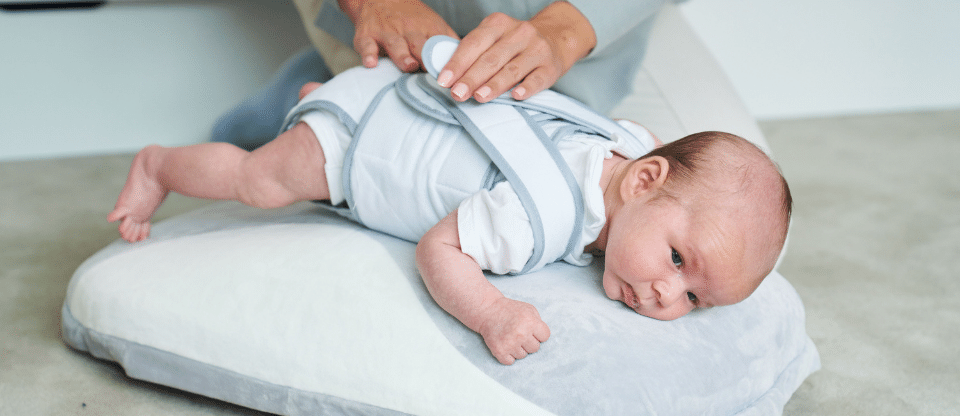Your first week at home with a new baby can be daunting but exciting. Here's what to expect and how to stay sane.
Brace Yourself
At the hospital, your baby is examined by the pediatrician, who will explain to you any obvious curiosities (for example, birthmarks). After you get home, however, your baby may produce some unexpected sights and sounds; most are normal.
The Umbilical Cord
For such a small child, the cord stump may appear very dark and unwieldy. This isn't a problem; it'll disengage after three weeks. Until then, keep it clean and dry (fold diapers away from it) (give baby sponge baths only, until it falls off).
Baby's Breathing
Newborns breathe a lot faster than older babies, kids, and adults. On average, newborns younger than 6 months take about 40 breaths per minute. That looks pretty fast if you’re watching them.
While babies sleep, breathing may slow to 20 breaths per minute. A newborn's breathing may cease for 5 to 10 seconds before restarting at a faster rate - roughly 50 to 60 breaths per minute - for 10 to 15 seconds in periodic breathing. Even when resting, they should not take more than 10 seconds between breaths. While your baby is healthy and relaxed, get to know his or her typical breathing pattern. This will make it easier for you to notice if things change.
The Spit Up
According to the American Academy of Pediatrics' (AAP), burping your baby every three to five minutes during feedings and placing them in an upright position in an infant seat or stroller right after feeding, are two effective ways to reduce spit up. Alternatively, simply do what comes naturally: hold them.
The Poop
Baby's poop starts out blackish green, then fades into various hues of green, yellow, or brown, and it can be runny, pasty, seedy, or curdy. It's all normal, as unsettling as it may be. Early breastfeeding has a bonus: these babies poop is usually odourless.
Getting Through the Night
Because their tiny bellies can't hold much milk, babies need to be fed regularly, which is one of the reasons they wake up so often. Even so, you can start the process of putting the entire family on the same schedule. Early on, establish a routine: Every day, bathe, dress, play, and take a walk around the block at the same time. While your baby is sleeping, place them in the crib. As a result, your baby will learn to fall asleep on their own and will associate bedtime with their cot.
Swaddle your baby in a blanket. The movements of an unswaddled baby can startle them. Keep your little one face-up to reduce the risk of SIDS. Keep night feedings as sleepy and brief as possible, when they cry, go to your baby immediately so they have no time to get into a wakeful misery. Don't play or talk while you feed your baby. Many parents like to take their babies to bed with them so everyone can fall back to sleep quickly; do what feels right for you and your baby.
Newborns often sleep for four hours at a stretch and a total of 16 hours or more a day. Ordinary sounds and activities will not disturb them at this early age. However, if everybody creeps about and talks in whispers while they are asleep, there may come a time when your little one cannot sleep unless you do. It is therefore important to let them sleep through whatever sound level is normal for your household so that they don’t come to expect a quietness that will be inconvenient for all your lives.
RELATED: How to Swaddle a Baby
Calming a Crying Baby
Every baby has a fussy period during the day (for many, it's between 6 and 10 p.m) and often there's little you can do to eliminate this. Although it can be stressful to try to calm a distressed infant, always respond to the cry. "You can't spoil a young infant by paying attention to them; and if you respond to their cries for help, they'll cry less overall," the AAP says.
RELATED: 7 tips to soothe a crying baby
Take Care Of Yourself
Physical recovery after childbirth, along with sleep loss, can have a negative impact on your motherly self-esteem. The concept of being responsible for another human being who is so reliant on you may throw you off, especially if you are a new mother who has spent years being independent. Taking care of yourself will better help you get through the challenging newborn phase.
- Get enough sleep.
- Take breaks. Take a walk, no matter how short; run your own errands, to take some time for yourself.
- Let Dad take care of the baby so that you get some time alone.
- Continue to eat properly, and keep taking your vitamins.
- Accept that progress now is incremental. Break projects into smaller tasks. Wash a couple of dishes at a time if you have to.
- Wear a snug-fitting, non pendulous front baby carrier so you can work while holding your baby. Being close to you is familiar; they'll love the sounds and sensations and will even nap on and off.
- Delegate more. Enlist any and all visitors. Remember what they say: It takes a whole village to raise a child.
RELATED: The Ultimate Guide For New Parents
Hang in There!
The first six weeks can be extremely challenging. You're getting to know your baby, and you and your partner are adjusting to your new responsibilities. Keep in mind that around the six-week mark, you'll be rewarded with one of the most rewarding accomplishments of your parenting career: your baby will give you a genuine smile, and trust us, it is the best feeling in the whole wide world.


